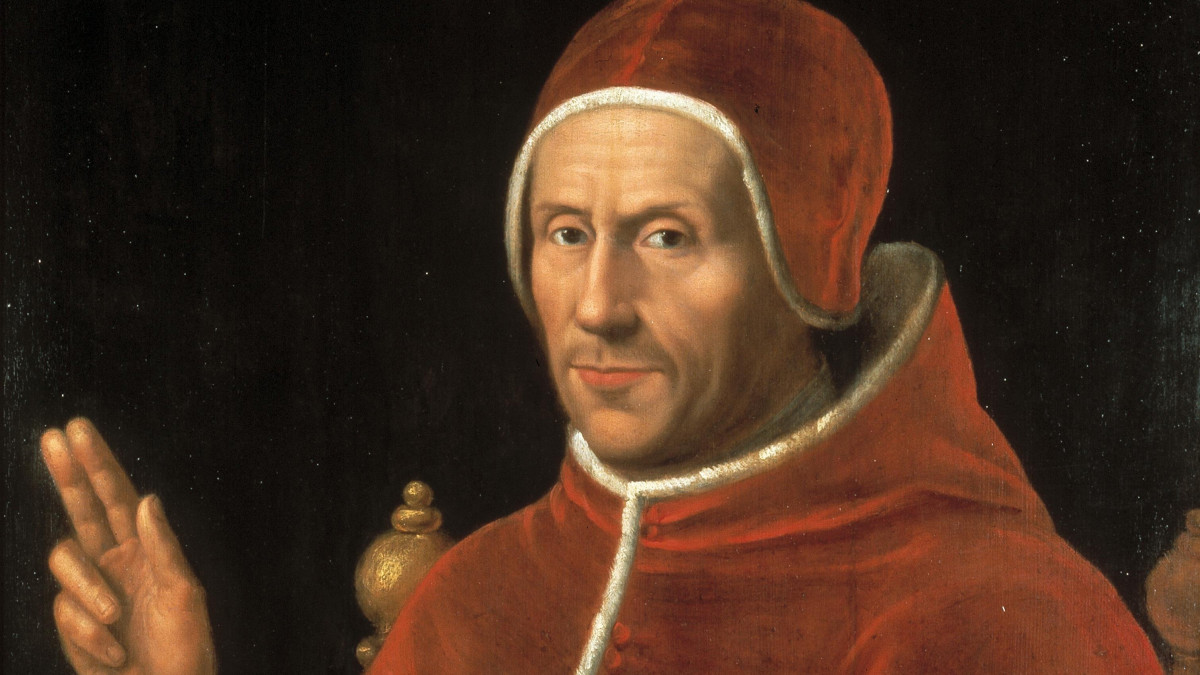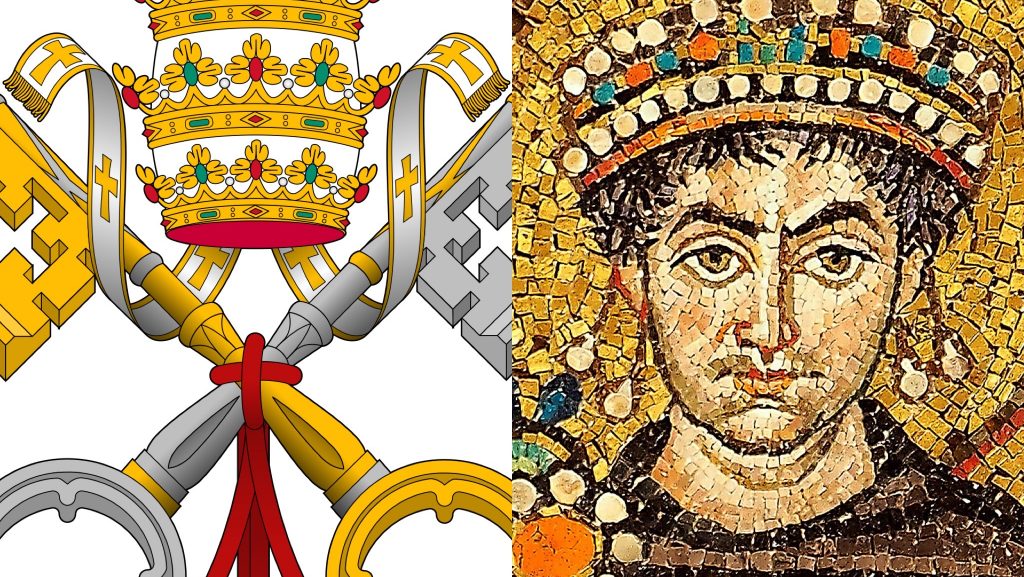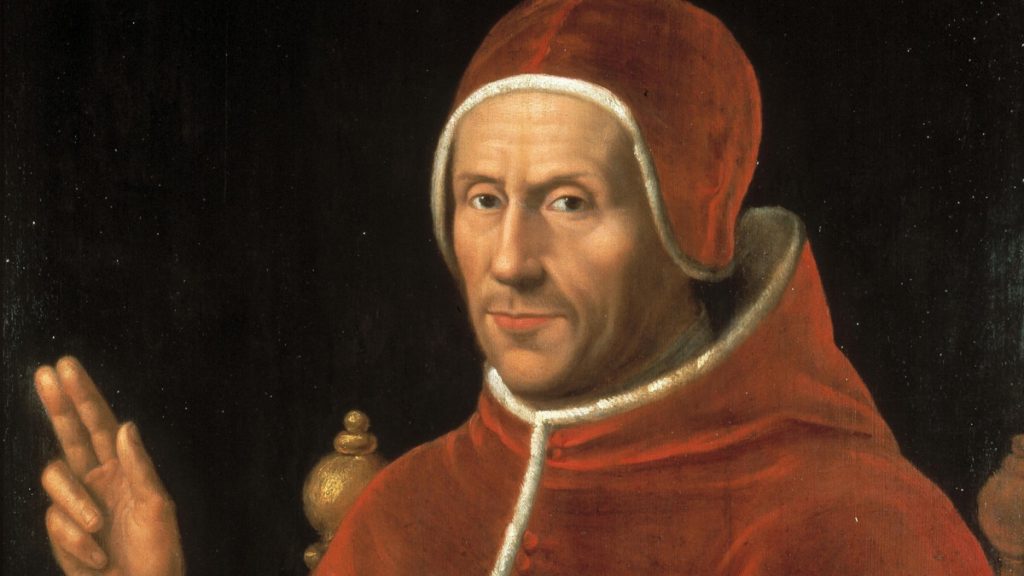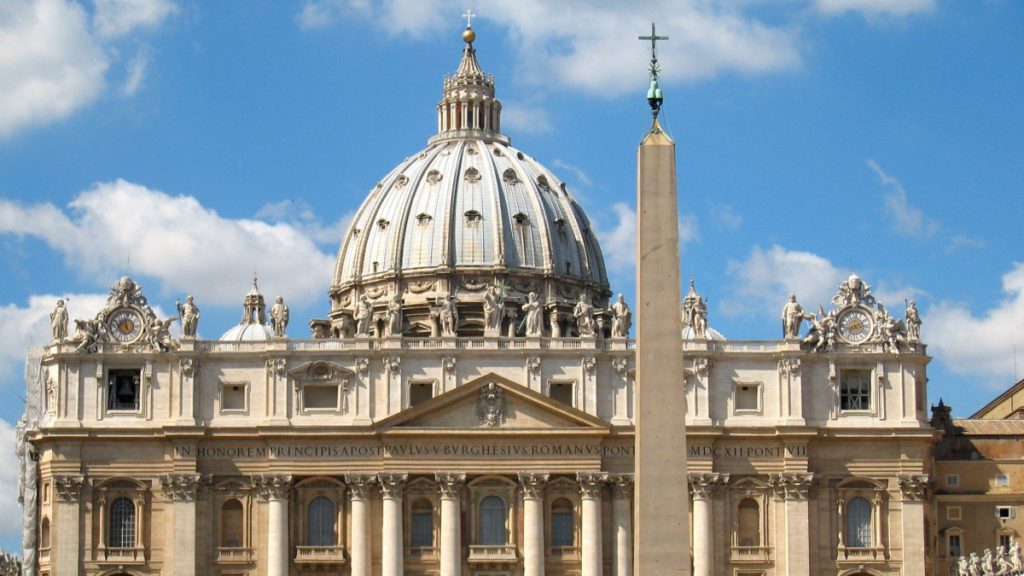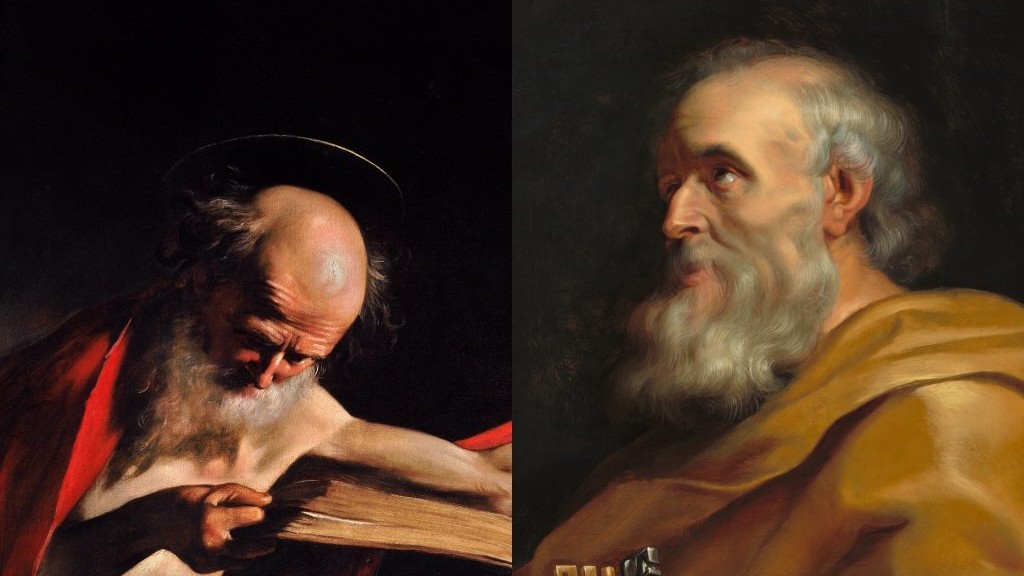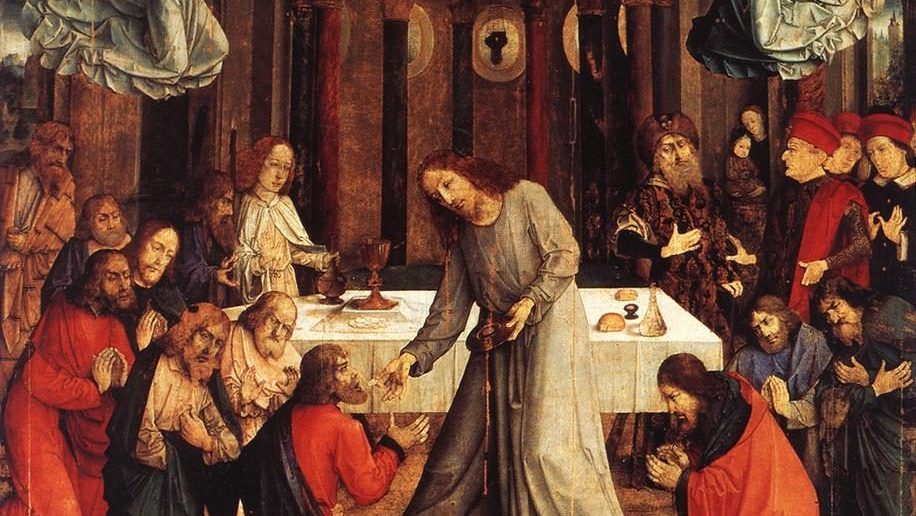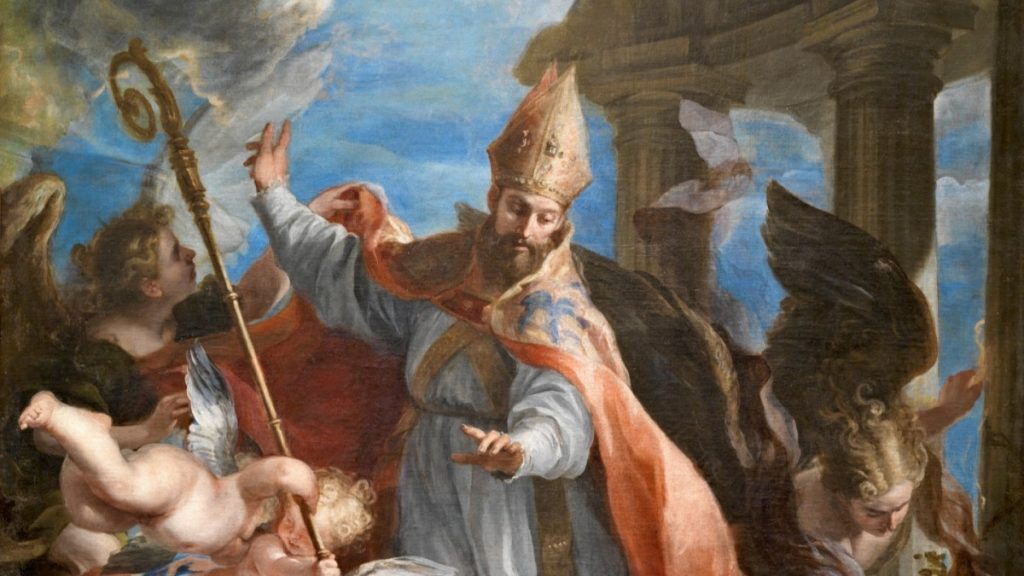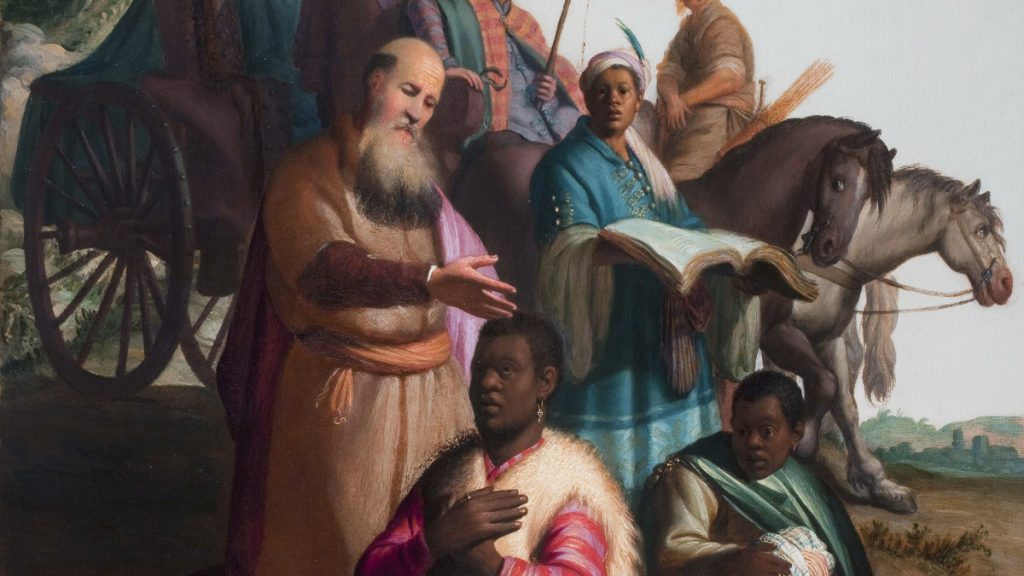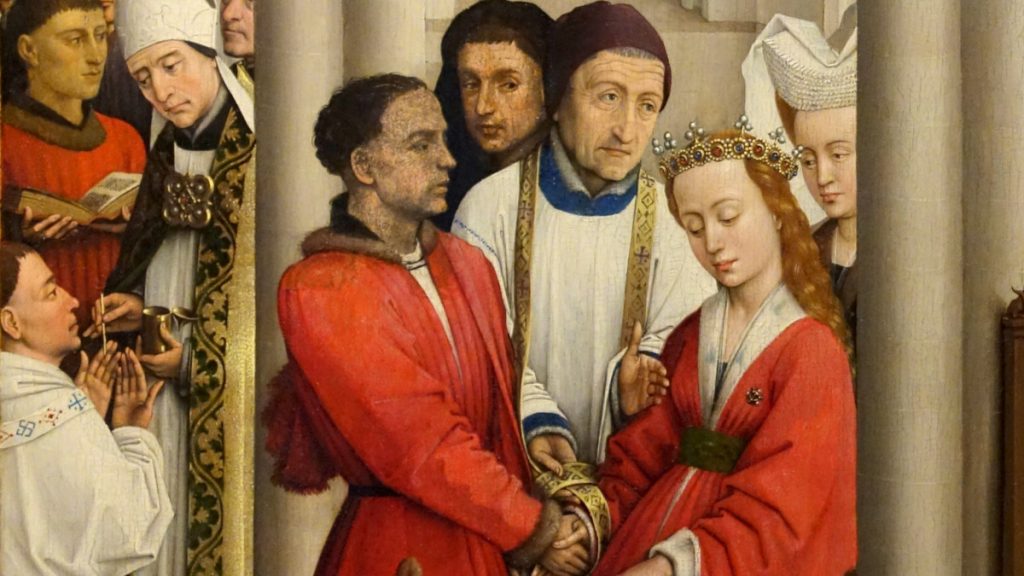Relevant Resources
Roadmap
The roadmap for this first installment in “Setting the Record Straight: The Truth vs. Anti-Catholic Myths” is as follows:
- Our thesis is that the repentance of Pope Adrian VI before some of Europe’s most powerful rulers, as well as his prediction of where Luther’s errors would lead, is an episode that refutes two common protestant assertions—that the Catholic Church was unrepentantly corrupt, and that Luther’s principles were an attempt at “reform” rather than a revolution. We will show this by:
- Providing some historical context for the episode; then
- Quoting the relevant words of Pope Adrian; then
- Summarizing the conclusions I reached when I first heard about this story.
Introduction
Growing up a protestant, I was accustomed to hearing how bad the Catholic Church was before the “reformation.” The accusations typically fell into one of two categories: doctrinal or moral. Either the Church no longer taught the “true gospel” (doctrinal), or its leaders were so corrupt that protestants were supposedly justified in separating from them and starting anew (moral).
But when I dove into the details myself, I often discovered facts of history that were surprisingly inconvenient to the protestant case, which I had always assumed was correct.
The story of Pope Adrian VI is one such episode.
Historical Context
I was never told this story by my fellow protestants growing up. I doubt they had heard of it either.
Essentially, it goes like this: exactly two years after Martin Luther was excommunicated, the Pope openly admitted and publicly repented of the moral corruption that had infected the Church before some of Europe’s most powerful leaders. He even admitted that much of it had stemmed from the Roman Church itself.
The Pope openly acknowledged the role that the sins of churchmen had played in the rise of Luther and what would later become known as protestantism. In fact, he claimed protestantism was a judgment from God for the sins of churchmen, including Popes.
This was a level of humility and honesty I never expected to see from a Pope of this era, given what I had been told about the Catholic Church by the various protestant preachers and theologians I looked up to throughout my formative years.
While the Pope was quite repentant on such matters, he nonetheless defended the Catholic Faith against Luther’s errors. Additionally, he offered several remarkably prophetic statements about where Luther’s principles would lead in both doctrinal and political matters.
We will cover both sets of statements momentarily.
Pope Adrian VI reigned only a short time—from January 1522 to September 1523. However, his short reign was utterly remarkable in how open and honest he was about the need for reform in the Church.
Adrian Florenszoon, or Adrian of Utrecht, was born in 1459 to humble parents. He would go on to study at the University of Louvain, where he became a scholar and a theologian. In 1507, the Holy Roman Emperor Maximilian I appointed him his grandson’s tutor. The grandson in question was the Archduke Charles—the future Emperor Charles V.
Adrian was made a bishop in 1516, and a Cardinal by Pope Leo X in 1517—the same year Luther published his Ninety-Five Theses. When Archduke Charles became Emperor Charles in 1519, Adrian became his viceroy, in which capacity he heard of his election to the papacy in 1522.
The Dutch Pope faced immense challenges upon assuming the pontificate. Among them was the ongoing war between Charles and Francis I of France, the danger posed to Europe by the Islamic Ottoman Empire, Luther’s revolt in Germany, and the need for reform within the Church.
In 1522, Charles convened the Diet of Nuremberg, a gathering of the princes of the Holy Roman Empire to address the issues of the day. The Pope sent his nuncio, Francesco Chieregati, to represent him before the Diet. On January 3, 1523—exactly two years after Pope Leo X formally excommunicated Martin Luther—Chieregati read a document to the Diet that was drafted by the Pope himself, in which he not only condemned Luther’s errors and the destruction of lives and property his ostensible followers had caused, but also openly admitted the need for reform in the Church and, above all, in the Roman Curia (the Roman Church’s governing court). His words read like one of the classic statements of repentance from King David over Bathsheba, or the prophet Daniel over the sins of the people of Israel.
Upon reading them, the caricature of a hopelessly corrupt Catholic Church endlessly bent on depravity and error that I had assumed was true my whole life was shattered. I had never read any statement by Martin Luther or any of the other “reformers” that so openly expressed such repentance.
But the Pope also strongly condemned Luther’s errors, and made several remarkably prophetic statements that rang true for me, even as a protestant struggling to discern how to find the truth among an ever-increasing number of contradictory and unresolvable protestant claims about “the true faith.”
After reading Pope Adrian VI’s words, I knew there was more to the “reformation” than I had been told, so I began to dig deeper.
The Pope Repents of the Priesthood’s Sins
First, let’s look at Pope Adrian VI’s public repentance for the sins of the priesthood (including Popes) before the Imperial Diet, which was at the conclusion of his message. We will quote this portion of his words in full, as they speak for themselves (pgs. 125-26)1:
You [the papal nuncio] will also say that we frankly confess that God permits this persecution to afflict His Church because of the sins of men, especially of the priests and prelates of the Church. For certainly the hand of the Lord has not been shortened so that He cannot save, but sins separates us from Him and hide His face from us so that He does not hear. Scripture proclaims that the sins of the people are a consequence of the sins of the priests, and therefore (as Chrysostom says) our Savior, about to cure the ailing city of Jerusalem, first entered the Temple to chastise first the sins of the priests, like the good doctor who cures a sickness at its source.
We know that for many years many abominable things have occurred in this Holy See, abuses in spiritual matters, transgressions of the commandments, and finally in everything a change for the worse [et omnia denique in perversum mutata]. No wonder that the illness has spread from the head to the members, from the Supreme Pontiffs to the prelates below them. All of us (that is, prelates and clergy), each one of us, have strayed from our paths; nor for a long time has anyone done good; no, not even one [Ps. 14:3].
Therefore, we must all give glory only to God and humble our souls before Him, and each one of us must consider how he has fallen and judge himself, rather than await the judgment of God with the rod of His anger. As far as we are concerned, therefore, you will promise that we will expend every effort to reform first this Curia, whence perhaps all this evil has come, so that, as corruption spread from that place to every lower place, the good health and reformation of all may also issue forth.
We consider ourselves all the more bound to attend to this, the more we perceive the entire world longing for such a reformation. (As we believe others have said to you) we never sought to gain this papal office. Indeed we preferred, so far as we could, to lead a private life and serve God in holy solitude, and we would have certainly declined this papacy except that the fear of God, the uncorrupt manner of our election, and the dread of impending schism because of our refusal forced us to accept it. Therefore we submitted to the supreme dignity not from a lust for power, nor for the enrichment of our relatives, but out of obedience to the divine will, in order to reform His deformed bride, the Catholic Church, to aid the oppressed, to encourage and honor learned and virtuous men who for so long have been disregarded, and finally to do everything else a good pope and a legitimate successor of blessed Peter should do.
Yet no man should be surprised if he does not see all errors and abuses immediately corrected by us. For the sickness is of too long standing, nor is it a single disease, but varied and complex. We must advance gradually to its cure and first attend to the more serious and more dangerous ills, lest in a desire to reform everything at the same time we throw everything into confusion. All sudden changes (says Aristotle) are dangerous to the state. He who scrubs too much draws blood…
The Pope then promised several immediate reforms, including a request that the names of worthy men who had been ignored for consideration for various appointments (which were instead given to unworthy men) be sent to the Holy See so that he could ensure they were given positions once vacancies appeared (pgs. 126-27):
Also, because we have known that there are in Germany many good and learned men in poverty, even some of outstanding ability, who have been estranged from the Holy See because of the character of apostolic appointments which have been customarily given to actors and tavern-keepers rather than to learned men, we desire you to find out who they are and to send their names to us, so that we can provide for them on our own initiative when a vacancy occurs in a German benefice. For we know how prejudicial it has been to the honor of God and the salvation and edification of souls that ecclesiastical benefices, especially those involving the care and direction of souls, for so long have been given to unworthy men.
Suffice it to say, as a protestant reading these words, I was struck by the transparency and forcefulness of the Pope’s public repentance. This wasn’t decades or centuries after the fact—it was occurring at the very beginning of what I had always been told was a “reformation.” I began to wonder if there were other things I simply hadn’t been told that would bolster the Catholic case.
The Pope Prophesies the Result of Luther’s Errors
We will conclude with some of the Pope’s predictions about where Luther’s principles would lead, particularly those that denied the authority of the Church, both in the present and in its previous doctrinal definitions exercised through Ecumenical Councils, which Luther claimed could err.
The Pope pointed out a fact very inconvenient to Luther, namely, if his dogmas were correct, then all the ancestors of those in the Imperial Diet had believed a false faith, and thereby put themselves in danger of damnation (pg. 123):
Since their own parents, ancestors, and they themselves have always held to the faith which the Roman and Catholic Church affirms, and since Luther and his followers hold a far different faith, asserting that many things are not de fide [“of the faith”] which those men have nevertheless held to be de fide, obviously those persons are condemned by Luther as infidels and heretics. Consequently, according to Luther, all of their ancestors who have died in our faith are in hell, since error in faith makes men liable to damnation.
The Pope then moved onto the crux of the matter, namely, that Luther’s claim of “evangelical liberty” to interpret the Scriptures for himself (among other things) would invariably lead to the destruction of authority, not just in the Church, but among temporal powers as well (pg. 123):
Fifth, let them look to the end toward which the Lutherans go: namely, that under the guise of evangelical liberty which they proclaim to men, every source of authority is destroyed. Although they boasted from the outset that they wished to annihilate or curb ecclesiastical power, as if it had been seized tyrannically and contrary to the Gospel, yet since their basic principle—namely, the liberty which they preach—is equally or even more opposed to secular power, since that power cannot oblige men to obey under pain of mortal sin any laws, no matter how just and reasonable they are, it is clear that these men also wish to weaken secular power, albeit they cleverly pose as saving it…After that it is certain that the people will attempt the same thing against those very secular princes.
While well beyond the scope of this post, it is interesting to note that the rise of protestantism coincided with and preceded the rise of increasingly radical political ideologies. Indeed, often under the guise of “the people,” rebellions would rise up against, and sometimes even murder, legitimate rulers in succeeding centuries. While the Church had, since time immemorial, believed and taught that all political authority ultimately comes from God (and therefore could not be used contrary to His commands), revolutions in America, France, and elsewhere claimed all political authority came from “the people.” As such, their will began to replace divine and natural law as the accepted standard of political rectitude.
This was, undoubtedly, not Luther’s intention in asserting “evangelical liberty.” But for the reasons cited by Pope Adrian VI, these developments were not altogether unpredictable. “Ideas have consequences,” as the adage goes; and it has often been the role of the Church to remind would-be and actual heretics of the second, third, and fourth order consequences of their principles, to which they often remain oblivious, thinking only of the immediate results they intend to accomplish. A “small” compromise on principle at the beginning of an affair often leads to large and ultimately irreparable compromises later on.
Returning to Pope Adrian’s message, he then points to an example of how Luther’s “evangelical liberty” had led him to behave similarly to Mohammed, the founder of Islam (pg. 124):
[L]et them consider the fact that Luther employs almost the same method in seducing the Christian people as that most detestable Mohammed used in deceiving so many thousands of souls, namely, by permitting those things toward which carnal men are inclined and thereupon freeing them from those things which seem very important in our [Christians’] law, except that Luther seems to act with a little more restraint in order to deceive more effectively. Mohammed granted permission for having several wives, for spurning them at will, and for taking others. Luther, in order to win for himself the favor of monks and virgins consecrated to God, and of priests lusting for the delights of the flesh, proclaims that vows of perpetual chastity are illicit, to say nothing of not being binding, and therefore that those persons may marry because of evangelical liberty. He is unmindful of the words of the Apostle when he says concerning younger widows that when they have wantonly turned away from Christ they wish to marry and are to be condemned because they have broken their first troth.
While addressing the issue of consecrated virginity and celibacy is likewise beyond the scope of this post, a brief unpacking of this point would be fitting.
The “words of the Apostle” the Pope refers to are those of St. Paul to Timothy (1 Tim. 5:11-12):
11 But refuse to enroll younger widows; for when they grow wanton against Christ they desire to marry, 12 and so they incur condemnation for having violated their first pledge.
Paul did not object to widows marrying again (see verse 14). But he did believe widows should not bind themselves with a vow of celibacy unless they were sixty years or older (verse 9), presumably because the heat of youth had died down by then. In this case, the situation he sought to avoid was that of younger widows who had made a vow to remain single violating this “first pledge” in order to marry again.
Therefore, St. Paul obviously did not believe that such vows were illicit or not binding, as Luther had argued. Indeed, Paul encouraged Christians to remain celibate (see 1 Cor. 7). As I discovered when I began studying the Church Fathers, they unanimously affirmed that Christians should cherish vowed virginity and celibacy. Indeed, they considered this a higher vocation than even holy matrimony. So Luther was not only violating the plain sense of Scripture, but the Catholic Faith as it had always been held and practiced.
Ironically, per the Pope’s comparison of Luther with Mohammed and his allowance of multiple wives, Luther did in fact open the door to bigamy later in his life, notably in the case of Henry VIII of England and Prince Philip of Hesse.
The Pope then addressed the argument some were making that Luther had been denied a fair hearing, which we include here, as it was a prelude to the Pope’s prediction concerning the “evangelical liberty” asserted by Luther (pg. 124):
But if perchance anyone might say that Luther had been condemned by the Apostolic See without a hearing and a defense, and therefore that he should certainly be heard and should not be condemned before he has been convicted, you will reply: Those matters which are part of the faith must be believed because of divine authority and are not to be proved. Away with proofs, says Ambrose. When faith is sought, credence is to be given to the fishermen [the Apostles], not to the dialecticians. And certainly we admit that we should not deny him a defense in questions of fact, that is, whether or not he has said certain things, whether or not he has preached or written them, and so forth. But indeed concerning divine law and the subject of the sacraments, the authority of the saints and of the Church must prevail.
The Pope then laid out the implications of Luther’s rejection of the Church’s judgment on doctrinal matters in the name of “evangelical liberty” (pgs. 124-25):
Add the fact that almost all the matters in which Luther dissents from others have previously been condemned by various Councils. Moreover, it should not be called into doubt that what the General Councils and the universal Church affirm has been established as belonging to the faith. For he does injury to the Council of the Church who seeks to call into doubt matters once rightly disposed. For what can ever be certain among men or what will be the end of controversies and strife, if there will be liberty or license for every presumptuous and perverse man to renounce those doctrines which have been definitively ordained, not by the consent of one man or a few men, but by the consent of so many centuries and of so many of the wisest men and by the Catholic Church (whom God never permits to err in matters of faith)? Since therefore Luther and his followers condemn the Councils of the holy fathers, burn the sacred canons, throw everything into confusion as they will, and disturb the whole world, it is clear that they must be outlawed as enemies and disturbers of the public peace by all who love that peace.
When I first read these words, I was a protestant, and not yet convinced of Catholic claims. But it was difficult to deny the logic of the Pope’s assertions. If, in fact, even Ecumenical Councils could err—as Luther claimed—then how could any theological controversy come to an end? What would prevent anyone from claiming they were correctly interpreting Scripture, even if all previous Christians had interpreted it otherwise?
As a protestant, I did not have a framework believing in an infallible Church, of Ecumenical Councils. But in practical terms, I could not deny the Pope had a point. Indeed, I often witnessed the reality of what the Pope described as the “liberty or license for every presumptuous and perverse man to renounce those doctrines which have been definitively ordained, not by the consent of one man or a few men, but by the consent of centuries, and of so many of the wisest men…”
I had only begun to dig into the Church Fathers when I first read these words, and while aware that the earliest Apostolic Fathers were very far from anything like protestantism, I did not yet realize how absent anything like protestantism was from the ancient Christian faith as a whole.
Nonetheless, while the Pope’s words were directed to Luther, I had seen the same process he described unfold in protestantism throughout my entire life. New sects and denominations seemed to arise every day. Some man (and now even women) would think they had figured out what “true” or “authentic” Christianity was, and start their own “church,” with its own confession of faith. In doing so—to the annoyance of many more classical protestants (such as Lutherans, Anglicans, and some Reformed)—they were often abandoning what many of their own protestant ancestors believed and practiced.
But why was all this possible? It was possible for reasons that, again, go beyond the scope of this post, but which essentially amount to what Pope Adrian VI outlined in 1523: if there is no way to definitively conclude theological controversies, and if each man has “evangelical liberty” to interpret the Bible for himself, then such controversies will never end, as each man from every faction will believe he has “Scripture” on his side. Luther himself frequently condemned others who claimed the same “evangelical liberty” has he, but interpreted Scripture differently. The sword Luther wielded against the Pope and the Catholic Church was often wielded against him—hence the splintering of protestantism into numerous sects from day one.
Conclusions
So what did I conclude from this episode involving Pope Adrian VI? I can summarize that in three points:
- First, Pope Adrian’s public repentance on behalf of the papacy and the priesthood before some of the most powerful rulers in Europe, and its lack of any excuses for their bad behavior, exhibited true pastoral humility—a humility I had always been told was completely lacking in the Catholic Church, particularly at the time of the so-called “reformation.”
- Second, the fact that his repentance took place right at the beginning of his pontificate (which ended up being quite short), and so soon after the controversy with Luther had majorly escalated, indicated to me that there were many Catholics at the time—including the Pope himself—who recognized the need for reform in various areas of the Church’s life. As I would later discover, many Catholics—before, during, and after Luther’s life—called for and initiated all sorts of reforms. Indeed, just several months prior to Luther’s publication of the Ninety-Five Theses, the Church had concluded Lateran V, a reform-minded Ecumenical Council. Obviously, its efforts either didn’t stick, or came too late to avoid the oncoming storm. But many of these reform efforts would ultimately culminate in the Ecumenical Council of Trent. Luther was not alone in his call for reform. What distinguished him from so many other reform-minded Catholics was his denial of multiple dogmas of the Faith, of which we’ve only seen a glimpse.
- Finally, the Pope’s warnings about where Luther’s “evangelical liberty” would lead were, I concluded even as a protestant, hard to disagree with. With no framework for definitively concluding theological controversies, and by placing in doubt beliefs that had been held for centuries, even millennia, Luther had in fact initiated a process whose logic could not but result in a rejection of authority (even his own, as new protestants immediately showed him). While some “magisterial protestants” would claim that “the church” had authority to teach, this “authority” could in fact never rightly command anyone who believed they were interpreting Scripture correctly (perhaps the easiest claim in the world to make). All disputants in every such argument claim “Scripture” is on their side. But when the meaning of the Scriptures themselves are in doubt, it is quite literally impossible for those same Scriptures—as text on a page—to umpire a controversy about the meaning of that text. But if this same Scripture is the only infallible source of authority (which Luther and his progeny claimed), then that means every interpretation is in principle fallible (capable of erring), and therefore subject to “correction” by anyone claiming to possess the actually correct interpretation of Scripture. How could anything but chaos be the result? And amid such chaos—as I often asked myself—where would the truth be, and how could it be publicly identified for the salvation of the world? Whether the Pope’s solution was right or not, I knew even then that his diagnosis of the problem, and his prognosis for how “evangelical liberty” would unfold, had a large grain of truth in it. It was, indeed, a reality I had witnessed and taken for granted my entire Christian life.
I realize that each of these three conclusions touch on multiple issues that require a great deal of unpacking. But suffice it to say, discovering this episode with Pope Adrian VI played a major role in “Setting the Record Straight” for me, and it encouraged me to dig deeper with a more skeptical approach to the historical narrative I had inherited as a protestant.
The more I did so, the more I discovered that much of what I “knew” just wasn’t so.
